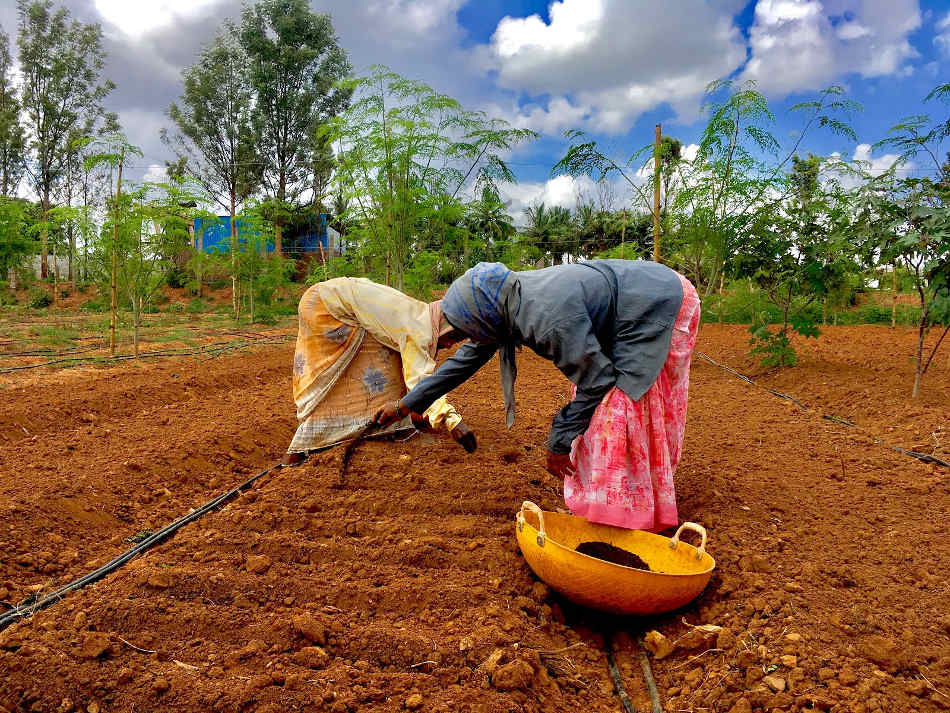A major breakthrough in scaling up agroecological farming in Karnataka, India

26 June 2018, Bengaluru, India: After the much publicised commitment of the State of Andhra Pradesh to scale up ‘Zero Budget Natural Farming’ among small holder farmers, its neighbouring state Karnataka too has announced its resolve to propagate this model.
The announcement by the Karnataka government, came after the Chief Minister and his team met up with officials implementing the ZBNF program in Andhra Pradesh alongside members of the ZBNF movement in Karnataka – Karnataka Rajya Raitha Sangha (KRRS), Mahamaitree Alliance, and others on Monday (25 June).
KRRS, a prominent voice of the state’s farmers, is also a member of the international peasant movement La Via Campesina.
ZBNF is considered ‘zero budget’ because costs of raising the main crop are offset by the income that farmers earn from intercrops. This model ends reliance on purchased inputs and loans for farming, positioning itself as a solution to extreme indebtedness and suicides among Indian farmers.
Developed by Subhash Palekar, an Indian agriculturalist, this model of farming has already turned into a grassroots movement among the farmers in Karnataka, after KRRS organised several training camps in early 2000’s and persuaded their members to adopt this model. The ‘ZBNF movement’ has organized close to 60 massive state-level training camps in the last decade, with an average of 1000–2000 farmer participants, including women, men and youth.
In Karnataka, the ZBNF movement has achieved massive scale not only because of effective farming practices, but because of a social movement dynamic – motivating members through discourse, mobilising resources from allies, self-organised pedagogical activities, charismatic and local leadership, and generating a spirit of volunteerism among its members. For long the farmers movements have been demanding the State to offer support for scaling this up.
Also Watch: Do Nothing – a film on Zero Budget Natural Farming
In the announcement made at the meeting on Monday evening, the government of Karnataka has agreed to start a pilot project and set up teams who will work in 10 agro-climatic zones of the state to scale up this model in a systematic way.
The state officials will also be visiting Andhra Pradesh where the State government has already launched an ambitious scale-up of the ZBNF programme to take it to 6 million farmers by 2024.
ZBNF, like agroecology, aims to enhance nature’s own processes and eliminate external inputs, debt and dependency. The practices of ZBNF include effective spacing of crops, contouring and bunds to conserve water; intensive mulching; the addition of microbial cultures to enhance decomposition and nutrient recycling; use of local seeds; integration of crops, trees and livestock (mainly cows); extensive intercropping; and crop rotations, among others.
In the announcement made at the meeting on Monday, the State government has also assured to allocate budgets for the implementation of this program.
https://www.facebook.com/lvcsouthasia/posts/1067881756698498
